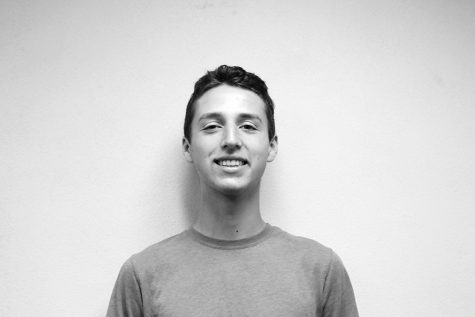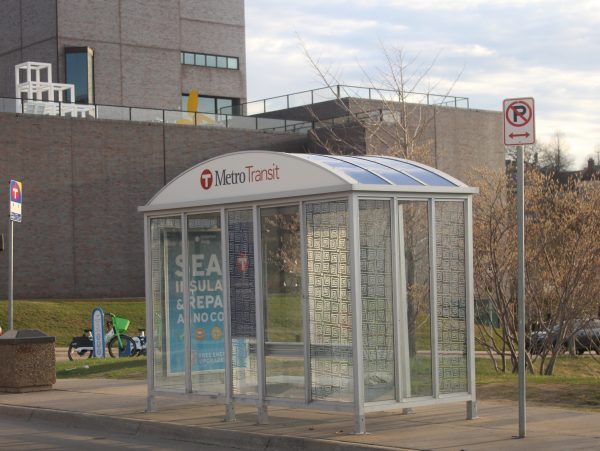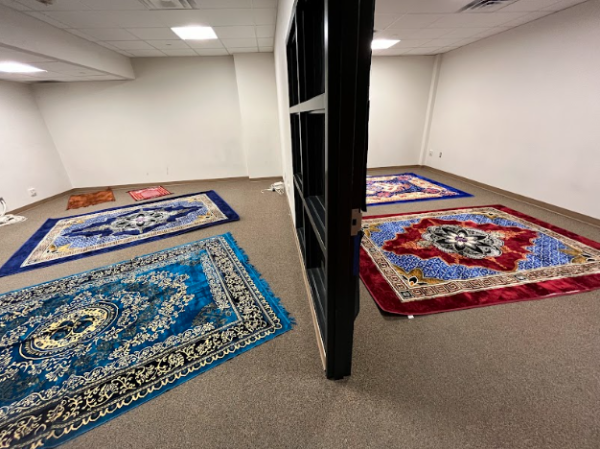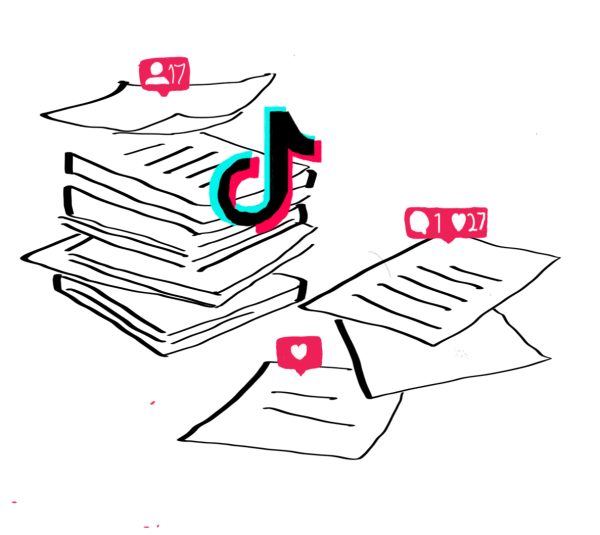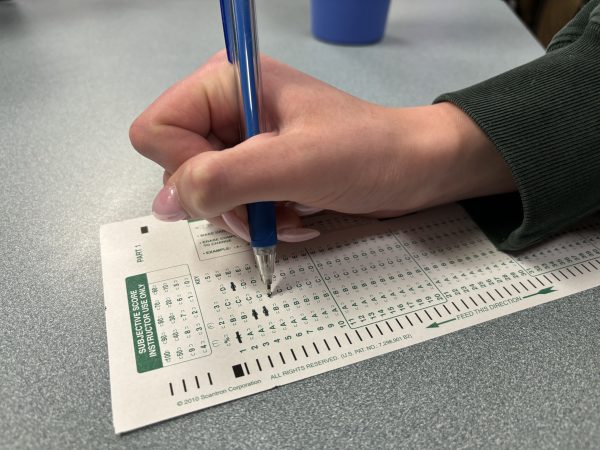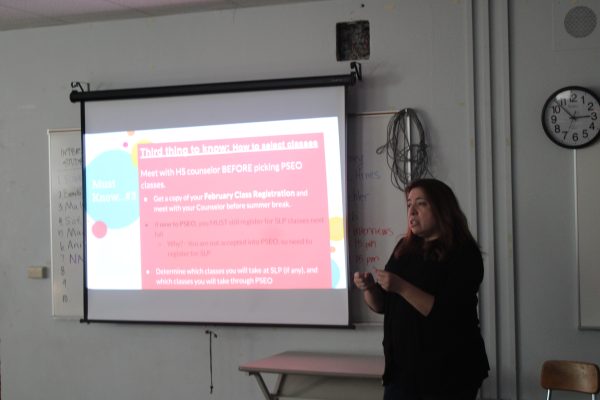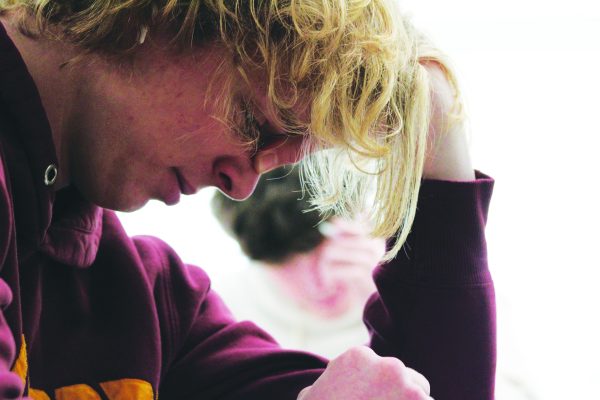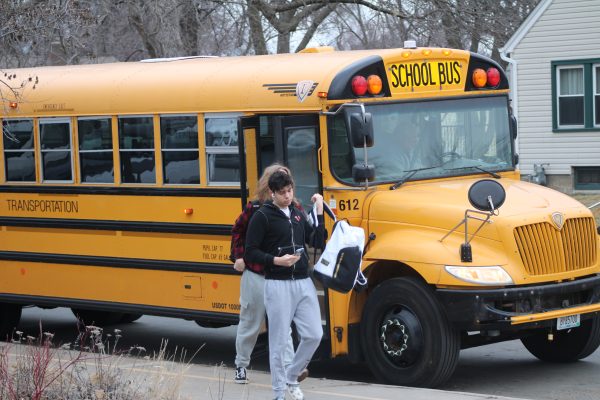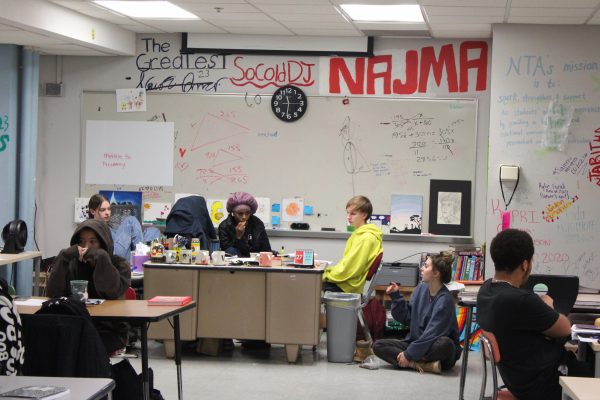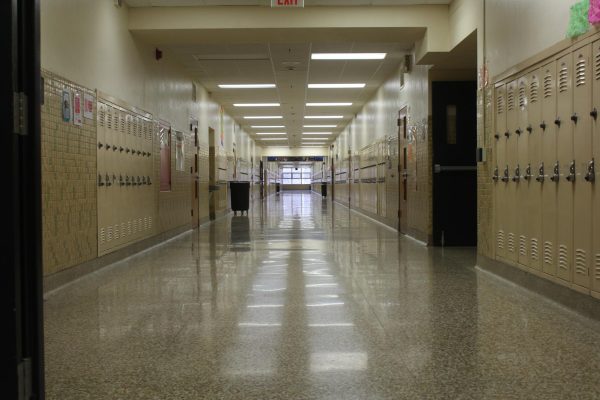Democrats, Republicans prepare to caucus
Minnesota, 12 other states have Super Tuesday caucuses or primaries
February 25, 2016
Senior Dorothy Slater prepares to cast her vote for the first time because she finds importance in youth participation in the political process.
Slater said she looks forward to caucusing because every voter should make their voice heard.
“I know that one vote or one opinion can’t change national politics,” Slater said. “But if everyone thought that, then no decisions would be made.”
The Minnesota Republican Party (GOP) and Democratic-Farmer-Labor Party (DFL) will both hold their precinct caucuses at 7 p.m. March 1.
Senior Sam Miller, who supports Florida Senator Marco Rubio, said students should caucus because the political decisions made will impact them.
“Most people think it won’t affect them, but both later in life and right now it will directly affect how you live,” Miller said.
Slater, who plans to attend the DFL caucus, said involvement of young people is important for shaping politics.
“It’s important to practice strong political habits now so that we can create a positive and strong environment as we grow up,” Slater said. “I also know that young voters are very underrepresented in the political system and I think it’s important that we change that.”
St. Louis Park has 16 precincts, according to the city’s website. At caucuses, voters nominate a candidate for president, choose precinct political leaders and discuss resolutions for the party to support and choose delegates. Voters eligible for the November general election are able to participate in a caucus.
DFL Senate District 46 chair Stephen Parsons said high school-aged citizens can involve themselves in the process.
“Students who will be 18 years or older by November 8, 2016 are eligible to participate in all caucus activities,” Parsons said. “Students who will be between 16 and 17 years old by November 8, 2016 can still participate in the caucus and even become a precinct chair or vice-chair.”
In Minnesota and across the country, Democrats decide between former Secretary of State Hillary Clinton and Vermont Senator Bernie Sanders. The Republican field features neurosurgeon Ben Carson, Texas Senator Ted Cruz, Ohio Governor John Kasich, Florida Senator Marco Rubio and businessman Donald Trump.
Slater said although she continues to research candidates, she plans to support Bernie Sanders.
“Even though some people think he won’t be able to get elected, I still think the issues he cares about are important,” Slater said.
Miller said he supports Rubio because he feels the senator’s opinions align best with his own.
“I support him because I like his policies on all the important issues (to me) and I find he’s kind of similar to me in regards to political stance,” Miller said. “We both lean right but agree with some left-wing policies and ideas.”
Slater said issues of inequality and minority treatment are most important to her.
“The issues most important to me are what seem to be the most important to people my age and people who, in general, are a minority in some way — racially, economically, sexually, (or) age-wise,” Slater said. “So things like health care, minimum wage and job security, college affordability, true racial equality and things like that are really important to me.”
Parsons said caucuses provide an opportunity to participate in small-scale government.
“The precinct caucus is politics at the most local level. The caucus is a chance for you to literally get together with your neighbors and talk about the issues that most concern you,” Parsons said.
Miller said the issues most important to him include national defense and personal liberties.
“(Issues important to me are) the right to bear arms, economic policies, defense of both our nation and our nation’s allies and freedom of speech,” Miller said.
A late-January Star Tribune poll showed Clinton with a commanding lead over Sanders, but Sanders’ poll numbers in other states have risen in recent weeks. The Star Tribune poll showed Rubio with the advantage among Minnesota GOP voters.
Voters can find their caucus location for March 1 using the Minnesota Secretary of State’s Caucus Finder. The caucus begins at 7 p.m., with registration starting at 6:30 p.m. Voters in line to register by 8 p.m. can vote. DFL precinct caucuses will be at the high school, according to Parsons. The GOP caucuses will take place at various locations including St. Louis Park Middle School, Torah Academy and Susan Lindgren elementary school, according to the Caucus Finder.
Echo will report city, state and nationwide results as they become available March 1.



